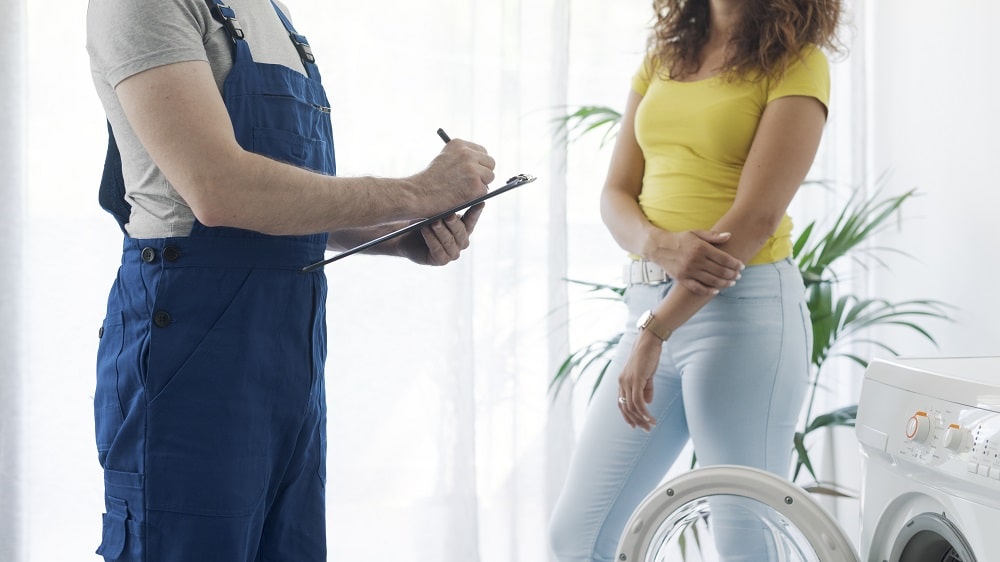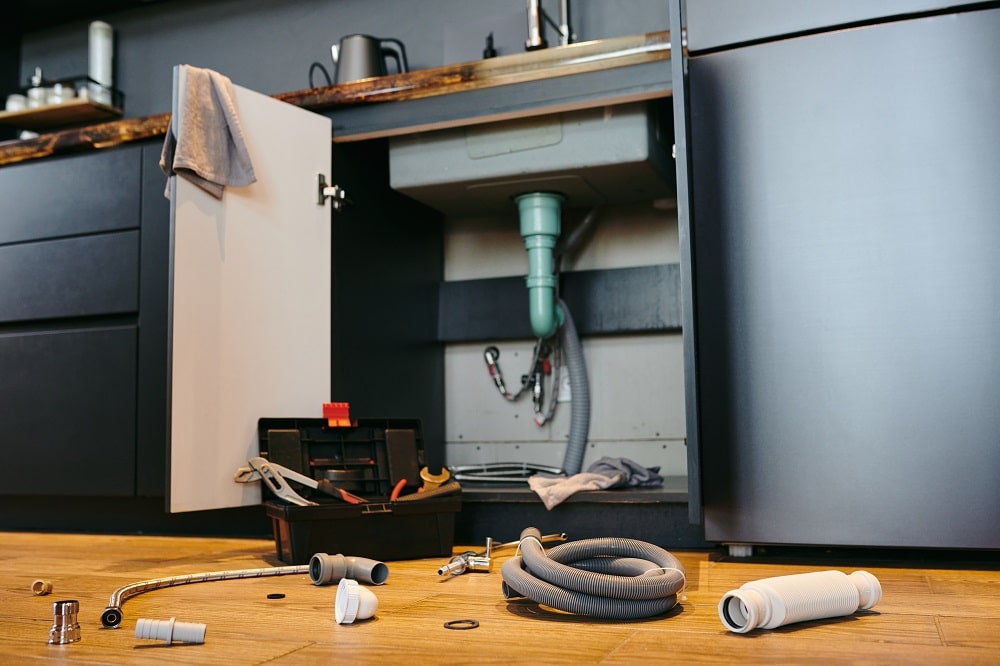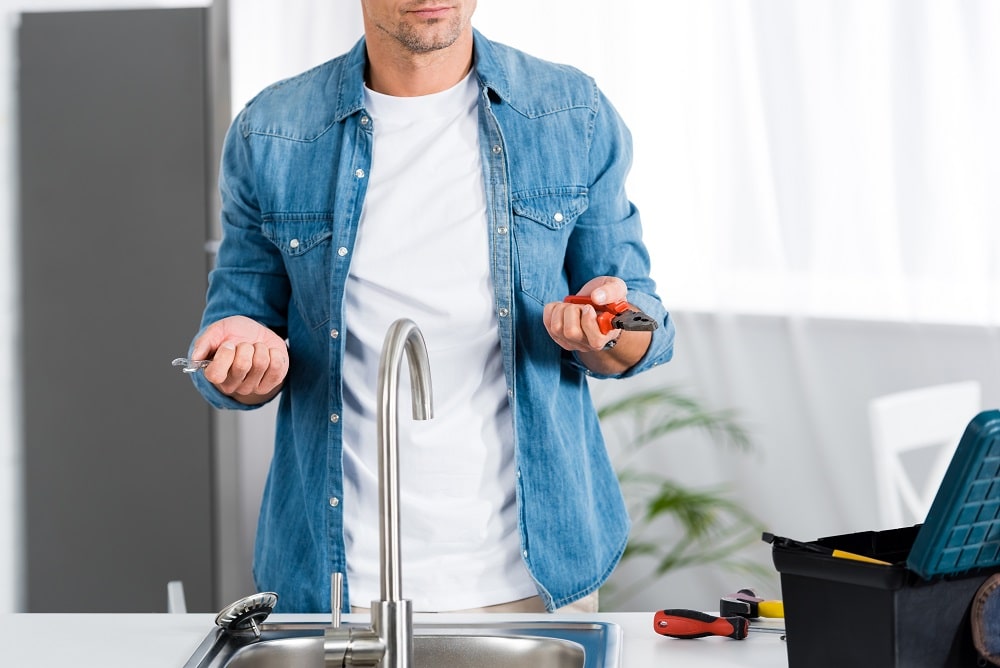What Questions to Ask Your Local Plumber?
-
tomsplumbing
-
0 Comment
Table of Contents
- Key Takeaways
- Weighing Experience and Skills
- Understanding Pricing and Estimates
- Maintaining Quality and Accountability
- Evaluating Professionalism
- Custom Plumbing Needs and Flexibility
- Be Wise By Asking Questions to Your Plumber
Finding the right plumber for your home or business is a vital decision. The more information you gather beforehand, the more confident you’ll feel in choosing the right expert for the job.
Asking the right questions helps protect your investment and make sure the plumber meets your specific needs. Whether it’s about their experience, pricing, guarantees, or services offered, the right questions will guide your choice.
At Tom’s Plumbing and Drain Service, LLC we believe in transparency and are always ready to answer any questions you have. Feel free to contact us if you need more information or have any concerns.
Key Takeaways
- Ask about the plumber’s experience, especially with systems similar to yours and any specialized services.
- Plumbing emergencies require quick assessments. Methods like hydro-jetting and video inspections are helpful.
- Request a written estimate that includes labor, materials, and any additional fees. Understand the pricing structure.
- A good plumber will provide references and have positive reviews. Ask about warranties and follow-up services.
- Verify the plumber’s license and insurance, and ensure they’re transparent about pricing.
- For custom projects, confirm the plumber has experience with specialty parts and unique systems.
1. Weighing Experience and Skills
Experience matters when it comes to plumbing. A plumber with solid experience is likely to handle both routine maintenance and complex systems with ease. Here’s how to assess their expertise:
Years in Business

If you have older pipes or unique installations, it’s important to confirm their ability to manage these specialized systems. The longer a plumber has been in business, the more likely they have encountered a wide variety of issues.
Specializations
Plumbing covers a broad range of services. You should know if the plumber specializes in certain tasks like drain cleaning, installations, or sewer line repairs.
If you’re interested in energy-efficient appliances or eco-friendly systems, it’s worth asking if they’ve worked with these kinds of installations. For larger projects, make sure they’ve handled similar installations that require technical expertise.
Handling Complex Issues
In plumbing emergencies, how a plumber approaches and solves problems makes all the difference. Whether it’s a burst pipe or a severe clog, a skilled plumber should quickly assess the situation and formulate a clear plan of action.
Problem-Solving Skills
A dependable plumber will clearly explain their approach to solving the issue and provide an estimated timeline and cost. Ask if they use advanced methods such as hydro-jetting or video inspections to detect and solve plumbing problems.
Hydro-jetting uses high-pressure water to clean drain lines and clear blockages, which is an effective method for dealing with stubborn clogs. Video inspection, on the other hand, is a non-invasive way to inspect the interior of pipes and identify issues without the need for digging.
2. Understanding Pricing and Estimates
Pricing is a critical factor in choosing the right plumber. You should have a full understanding of what the costs will be before the job begins to avoid any surprises later on.
Pricing Structures
Plumbers typically use different pricing methods: flat fees or hourly rates with additional material costs. Be sure to ask about the pricing structure for services like leak repairs or drain cleaning.
Request a clear breakdown of charges, including labor, materials, and equipment, to avoid any unexpected costs. A flat-rate pricing model is often used for standard services, while hourly rates may apply for more complex or emergency jobs.
Written Estimates
Always ask for a written estimate. This protects both you and the plumber by setting clear expectations. A well-structured estimate should include:
- Labor: Estimated hours and rate
- Materials: Types and costs of parts
- Additional Fees: Call-out fees, equipment rental costs, etc.
Also, confirm whether the estimate is fixed or if the final cost might increase due to unforeseen circumstances. It’s wise to get quotes from a few plumbers so you can compare prices and services. A written estimate ensures that there are no surprises at the end of the job.
Factors Affecting Costs
The price for plumbing work can vary based on several factors. The severity of the issue is a major factor. For example, repairing a burst pipe is more expensive than fixing a minor leak. Emergency or after-hours services typically cost more as well.
The quality of materials used can influence pricing. Higher-quality parts might have a higher upfront cost, but they can provide greater durability over time, potentially saving you money in the long run due to fewer repairs or replacements.
3. Maintaining Quality and Accountability
Quality and accountability are important when hiring a plumber. It’s not just about the price, but also about making sure the plumber is reliable and professional.
References and Reviews

A reliable plumber should be transparent and focused on customer satisfaction. Always check online platforms such as Google, Yelp, or Angie’s List for customer feedback.
Warranty Terms
Inquire about the plumber’s warranty, including how long it lasts and what it covers. A good warranty should include both parts and labor, offering protection in case something goes wrong after the work is completed. Make sure you understand the process for filing a warranty claim.
Follow-Up Services
Post-repair services are also important. Will the plumber provide ongoing maintenance or follow-up checks to ensure everything is still in good working order? It’s also a plus if they offer 24/7 emergency services. Be sure to ask about their policy if the work is incomplete or if there are any issues after the repair. Will they fix it for free, or will there be extra charges involved?
4. Evaluating Professionalism
Professionalism is a must when selecting a plumber. You should always verify that they have the appropriate credentials and licenses to work in your area.
Credentials and Licenses
A qualified plumber should be licensed and insured. Don’t trust plumbers who provide quotes without first evaluating the work site.
A good plumber will provide a detailed breakdown of the costs and any potential extra charges upfront. In most regions, plumbers are required to have a valid license and insurance to protect both themselves and the homeowner in case of accidents or mistakes during the job.
Questions for Unique Scenarios
If your plumbing needs are unique, such as having vintage pipes or needing custom solutions, ask the plumber how they would handle the situation. Be sure to ask about subcontractors as well. Are they qualified? Are they covered by insurance?
Plumbers who specialize in older systems or custom plumbing designs often have access to rare parts and solutions to meet these needs.
5. Custom Plumbing Needs and Flexibility
For homes with specialized plumbing systems or custom projects, it’s important to choose a plumber who can handle such tasks.
Custom Plumbing Projects

A plumber who understands custom needs will be able to reroute pipes, replace non-standard fixtures, and work with specialty materials.
Flexibility
Plumbing emergencies don’t always happen during business hours. Ask about their availability, including after-hours response times and any additional charges. Knowing how quickly they can respond in an emergency can provide peace of mind.
Be Wise By Asking Questions to Your Plumber
Choosing the right plumber doesn’t have to be overwhelming. By asking the right questions about their experience, pricing, and ability to handle problems, you can make a confident decision. Clear communication helps both parties understand exactly what to expect, leading to a smooth process and avoiding unnecessary stress or costs.
At Tom’s Plumbing and Drain Service, we’re always ready to answer your questions. Call us anytime, and we’ll be happy to assist. We’re here to provide high-quality plumbing services tailored to your needs.


